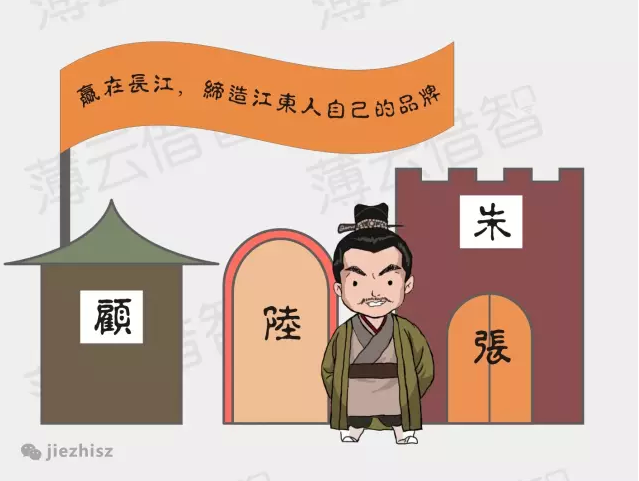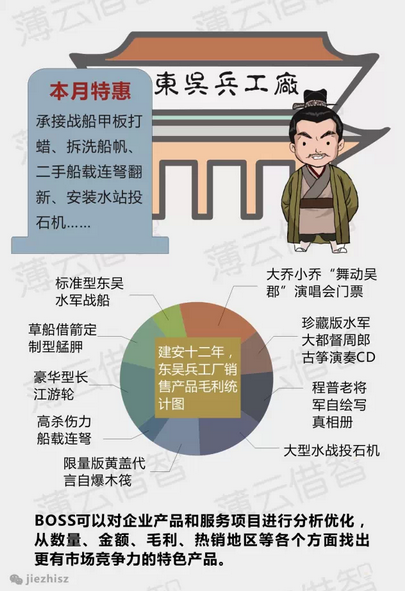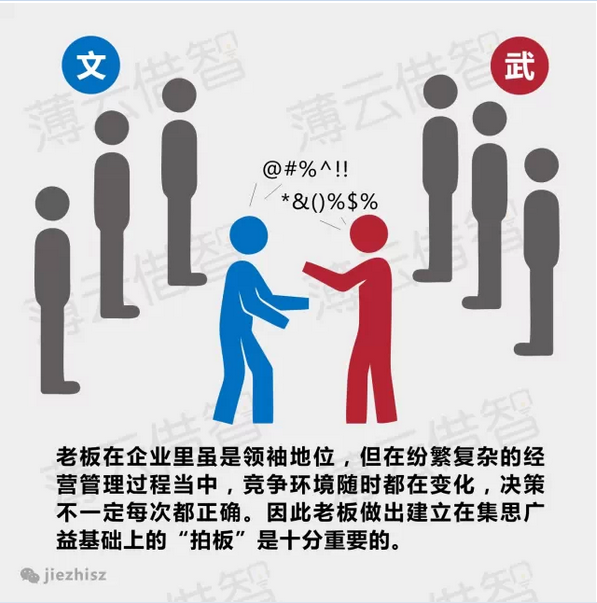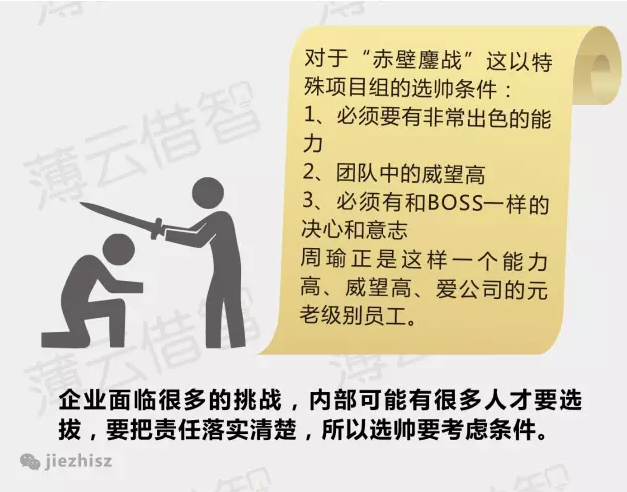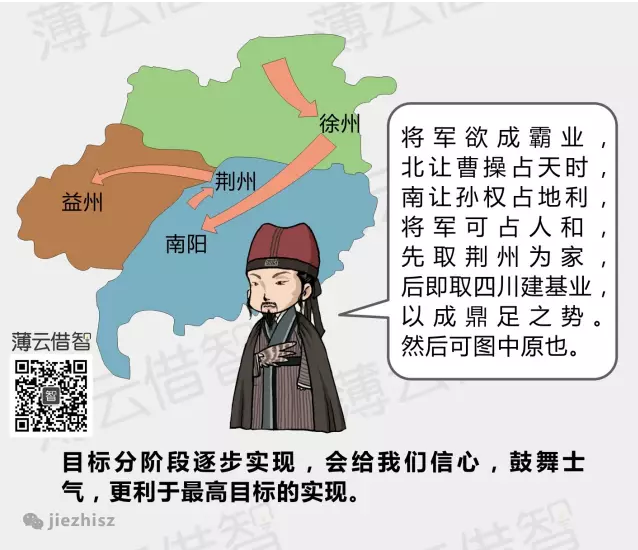Sun Quan took over the foundation of his father and brother at the age of 18 and was in charge of the Soochow government until his death at the age of 71. During the 53 years, the Soochow government was always rock solid.
The Battle of Chibi was an important turning point for the Soochow Group. After resisting the hostile takeover of a state-owned enterprise by Cao Cao, Sun Quan established a more profound corporate strategy: to expand steadily based on the Jiangdong market. He was able to do his best to protect Jiangdong private enterprises. To attract a large amount of local investment, the four major families of Wu Jun, Gu, Lu, Zhu and Zhang are particularly important.
Soochow Group has a special product on the market, that is, the Yangtze River Navy, but the market has great limitations, so it is more suitable for security and self-defense.
Apocalypse Now: How to make scientific decisions--How should BOSS decide?
The greatest contribution to the battle of Chibi was Zhou Yu, while Sun Quan only did three things:
First, brainstorming and brainstorming within the enterprise. In the face of civil servants surrendering and military generals fighting. Sun Quan's approach: speak freely, distinguish the pros and cons rationally, and make correct decisions.
Second, it is necessary to maintain unity of thought after a decision is made. When problems are discovered and discussed, they are encouraged to express their opinions, but a united front is required after the decision is made. Whether it is the corporate system, internal reform, or sales, BOSS must show his determination before every battle!
Third, implement the responsible person and appoint Zhou Yu - the CEO of Chibi Fighting.
In addition, every major appointment during Sun Quan's management period was a clever stroke. Whether it was to rectify the company's interior or resist malicious competition from rivals, it was done just right.
Cao Cao once commented on Sun Quan's ability that "children should be like Sun Zhongmou". This sentence comes from the mouth of the enemy, but it is the best evaluation.
However, throughout the history of China's kings, there are many people with management skills. Among them, Liu Bei has the most management ability and is well versed in employing people.
Among the three CEOs in the Three Kingdoms, Liu Bei, compared with Cao Cao and Sun Quan, has neither "financial capital" nor "one city and one region". His strategy and knowledge are far below Cao Sun's, but he is loyal, chivalrous, and kind. Making friends, more than investing in "human capital" operations, is the key to his success. From the perspective of HR, Liu Bei is worthy of being a wise chairman and a "master of gathering talents".
从几次大的战役中可以看出刘备具有相当强的作战指挥能力,但刘备十分清楚自己的谋略不如诸葛亮、庞统、法正等人,于是很少发表自己的主张,更很少一意孤行,只是通过发问、求教来鼓励那些比自己能力卓越的人出谋划策。自己很少冲锋陷阵,依然是通过激赏有能力的下属去为自己卖命。“情感投资”是管理者调动人的积极性的一项重要的手段。
刘备集团作为一个在乱世崛起的企业,发展历程非常艰辛。
刘备集团的成功与BOSS的个人感召力密不可分。刘皇叔不但有汉室宗亲的品牌,而且是个注重人性化管理的BOSS。性格非常宽和,擅长用感情与员工交流。建立了以“义”为核心的企业文化,员工的思想、价值观、行为能够在企业文化的感召下逐渐的统一,从而提升团队凝聚力。
刘备的企业目标是“匡扶汉室,伸大义与天下”,这对自己和团队都产生强大的激励作用。而诸葛亮给做出了具体的战略规划。
刘备创业之后屡战屡败,一打就输,四处逃战,投袁绍,投刘表,屡败屡战,从不认输。
确定了目标,就要有矢志不渝的精神,不管遭遇多大困难,始终激情澎湃,长矛在手、刀剑生辉这种精神应该灌溉到我们的企业中。
http://vc.dataguru.cn/article-7119-1.html
